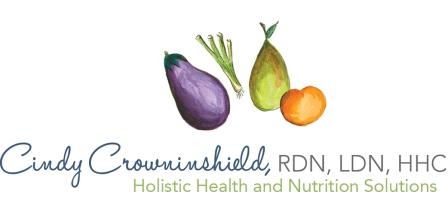FAQs
What is a dietitian?
A Registered Dietitian Nutritionist (RDN) is a food and nutrition expert who can translate the complex science of nutrition into practical solutions for healthy living. An RDN is able to separate facts from the fads you often read about in common magazines or hear about on television shows. An RDN can put you on the path to weight management, eating healthfully, and reducing your risk of chronic disease. Legally, an RDN is considered an expert on nutrition, registered with the Commission of Dietetic Registration (CDR), and licensed to practice diet and nutrition consultation. An RDN in the United States needs to graduate from an accredited college or university with a minimum of a bachelor’s degree with course work approved by the Academy of Nutrition and Dietetics Accreditation Council for Education in Nutrition and Dietetics (ACEND). Coursework typically includes food and nutrition sciences, foodservice systems management, business, economics, computer science, sociology, biochemistry, biology, physiology, microbiology, and chemistry. To further qualify to be an RDN, one needs to complete an accredited, supervised minimum 900+ hour internship program, pass a nationally accredited Board examination administered by the Commission on Dietetic Registration, and maintain active registration and licensing by completing continuing education.
Is a Dietitian the same thing as a Nutritionist?
I’m often asked if a dietitian is the same thing as a nutritionist. It’s understood that every registered dietitian is a nutritionist, but not every nutritionist is a registered dietitian. Registered Dietitian is a legal credential with a nationally recognized exam as well as education and clinical standards and requirements that must be met to earn and maintain the RDN credential. A dietitian is someone who works with food and nutritional knowledge, aiming to help patients in the prevention of diseases and health conditions related to nutrient deficiencies. A registered dietitian is seen as part of a patient’s clinical care treatment team. Nutritionists may or may not have any specific training, formal education, or knowledge in nutrition or human health. Nutritionists are not legally accepted as an expert; nor, are viewed as a qualified health professional. No qualifications are required. An example of a nutritionist is a health coach who can educate and support clients with general health and wellness information; helping their client achieve a health goal through lifestyle and behavior adjustments. Lastly, a registered dietitian can accept health insurance for payment while a nutritionist cannot.
How can a Dietitian help?
As a dietitian, I can assess your specific nutritional needs by analyzing your diet, health, and lifestyle factors and provide you with information to best fit your needs. I provide nutrition knowledge to help you become aware of the nutrition connection to your symptoms and health issues. We then talk about behavioral strategies and solutions needed to address them. We also discuss what being healthy means and health goals. Your definition of being healthy is different than everyone else’s definition. Although I’m your coach, educator, and champion, you have to be motivated and ready to implement change. Getting healthy cannot be a chore or seeing me as another task to cross off on the to-do list. Getting healthy and staying healthy is a lifetime commitment. My ultimate goal is to lead you towards improved quality of life…to that one next step towards a state of optimal health and higher self-confidence. I can help you turn a goal into a lifetime habit. I can help you get back on track and overcome your fears that are holding you back.
How many times do I need to meet with you?
The length of treatment is individualized to the patient. The number and frequency of times you meet with me will be based on your achievements and/or confidence in reaching your personal health goals. Whatever your specific condition or nutritional goals, we will work together to improve your life from the inside out!
Do you accept insurance?
Yes, I’m a provider with the following carriers: BCBS, CIGNA, Fallon, Harvard Pilgrim Healthcare, and UnitedHealthcare. Not all insurance carriers cover nutrition consultation or medical nutrition therapy services. Before contacting me, please check with your provider to see what your personal policy covers for nutrition counseling or medical nutrition therapy. The member services number to contact to find out more about your policy benefits can be found on the back of your insurance card.
Do I need a referral?
Most times, especially if you are a part of an HMO plan, you will need a referral to see me for nutrition counseling. You will need to confirm this with your insurance carrier, just like you would to confirm nutrition benefits coverage. If you do need a referral, follow your insurance carrier instructions. Most likely, the instructions will suggest you contact your primary care physician. If this is the case, your PCP can fax the referral to my attention at 781-417-6203.
How do I schedule an appointment?
You can schedule an appointment by phone, email, or online.
Schedule by phone by calling 781-354-0120.
Schedule by email by emailing cindy@cindycrowninshield.com.
Schedule online by clicking here.
